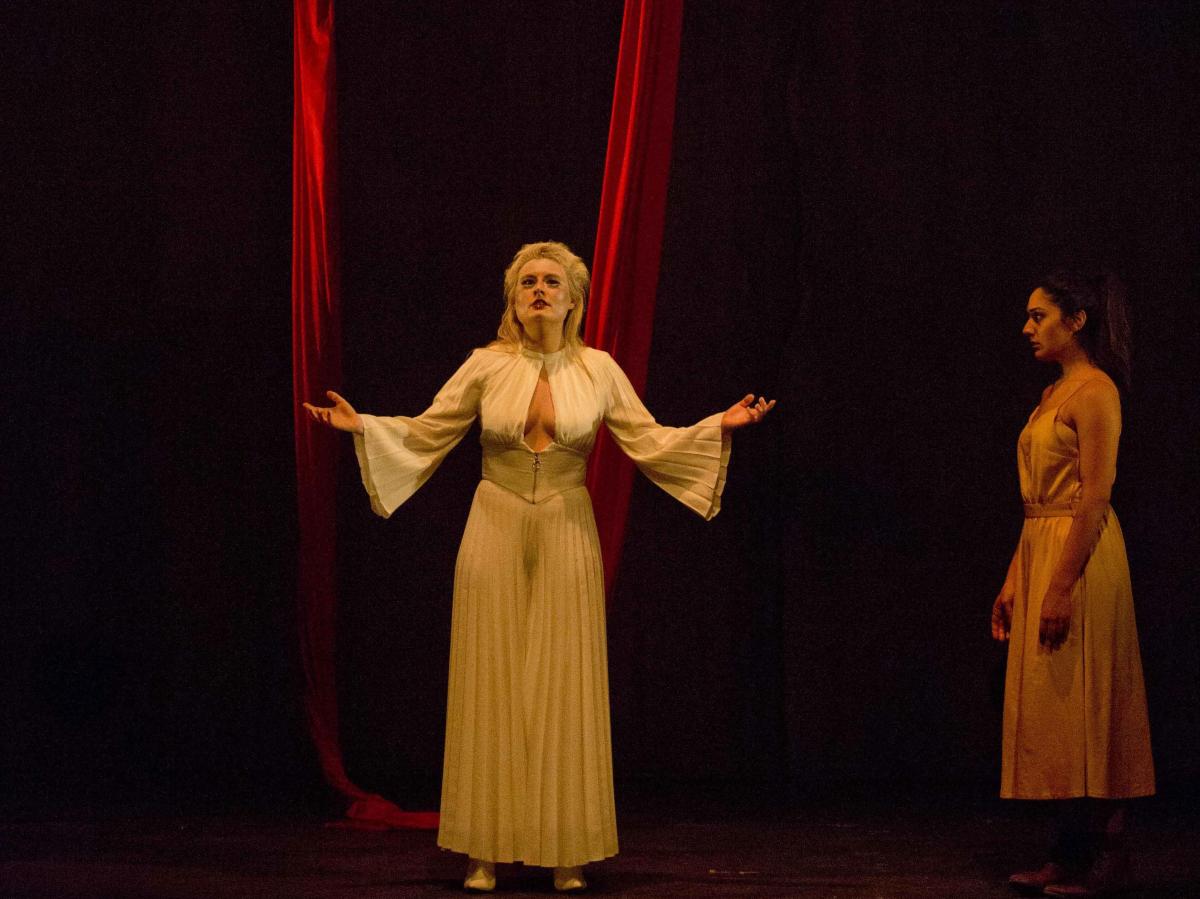Image: Eurydike+Orpheus. Supplied.
As much as artists are driven by their own uniqueness and individual burning passions, they often need to interconnect those passions with other artists to find their way in what can be a hugely competitive industry. Building relationships while in training, or while working on productions together, can be instrumental to career development.
While collaboration has been viewed as a buzzword from time to time, it still has real value for people who work in the arts — particularly for those at the beginning of their careers. Starting the right conversations with the right people can lead to collaborative opportunities that will help you progress in your chosen career path through the formal or informal mentorships that often arise.
NIDA student Maya Cranny has grown to understand the importance of collaborating since starting a Master of Fine Arts (Design for Performance) graduate degree.
‘There is no standard career progression in the creative industries, so making those connections and building relationships when you’re studying is vital,’ said Maya.
‘Seeing how people work in the industry firsthand is invaluable.’
Maya, who has just finished working on NIDA’s June production season with fellow students and industry professionals, is hoping to take a secondment with one of the international directors she collaborated with on set.
‘I had a really good experience with him and it looks like a great opportunity to take him up on that. It hasn’t been confirmed yet, but it is in the works which is exciting,’ she said.
Her advice to others who want to similarly progress in their career development is to work hard at starting the right conversations that can lead to potential collaborations down the road.
Build your connections
It’s not just students who need to actively seek out opportunities. Whatever your stage of career, a conversation with the right person can quickly lead to the development of a new project or idea.
The best way to start finding potential collaborators is to build your network by attending industry events. But the relationships you start should never be one-sided and have to benefit both parties. To understand what you bring to the partnership, you have to understand your own weaknesses and strengths first.
Starting the right conversations
Maya said that when you are learning at an institution like NIDA, ‘it is really important to always treat it like a job.’
‘It’s not a school environment anymore and you should put in the extra work. Having that strong work ethic definitely gets you noticed.’
Developing the right attitude to your work from day one will eventually lead to these kinds of opportunities, she added.
Her advice to those who want to make connections as they progress in their arts career is to always be professional — which isn’t only relevant to students, but also those already working in the industry.
‘You need to be constantly aware of who is around and who is listening because you don’t really know where everyone is coming from or who the director’s assistant is. You are constantly interacting with people so it is really important that you are working in a professional manner, even if it is just in the classroom. You never know,’ concluded Maya.





